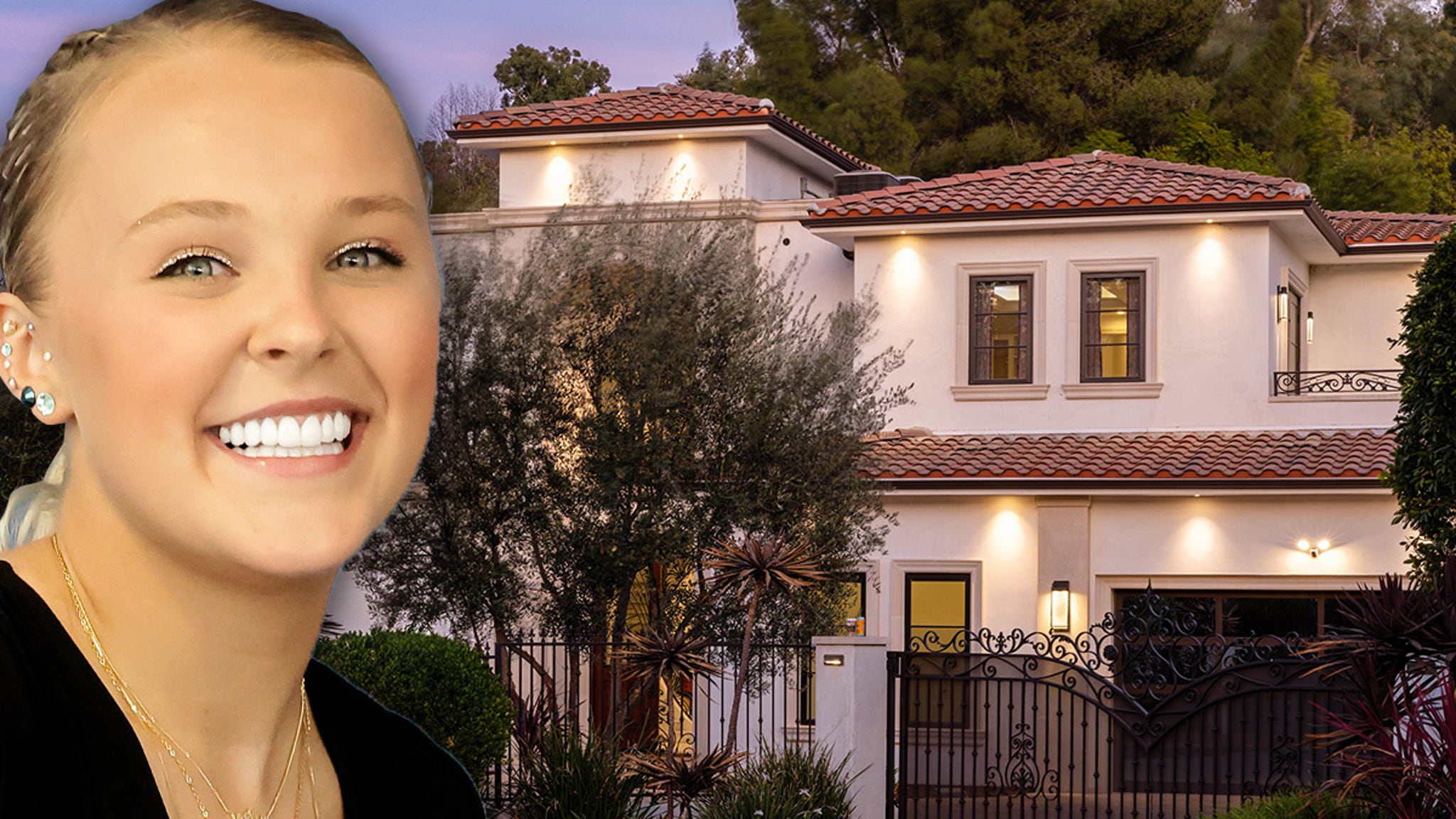Lifestyle
A beloved music producer is dying. His clients came to his home for a farewell concert

Classical music producer Adam Abeshouse was diagnosed with bile duct cancer last spring. His clients — including Simone Dinnerstein, Jeremy Denk and Joshua Bell — performed a concert in his home studio to bid farewell. “I was just thinking of how many of us wanted to celebrate Adam while he’s still here,” said pianist Lara Downes, who organized the event.
Rick Marino/Abeshouse Productions
hide caption
toggle caption
Rick Marino/Abeshouse Productions
On a recent Friday afternoon, Adam Abeshouse, one of the world’s leading producers of classical music, lay on his bed in his Westchester, N.Y., home, propped up with pillows, waiting for his pain medicine to kick in. He struggled to talk about his life’s work with a star-studded list of clients, which includes celebrity violinist Joshua Bell and pianist Garrick Ohlsson.
“I worked very hard for my clients,” the 63-year-old producer said. His breathing was labored. “I was devoted to them. From the devotion to the clients, I developed this theory that the best thing that I could do for my clients is make them feel safe, and loved, and create an atmosphere in the recording session to do their best.”
Last spring, Abeshouse was diagnosed with bile duct cancer. It progressed with devastating speed. In August, his doctors told Abeshouse he had only weeks to live. One of his clients, pianist Lara Downes, organized an at-home concert by the musicians he’d worked so closely with for decades.
Downes, who also hosts a video conversation series with NPR and Classical California, said the musicians wanted to give their beloved producer a chance to share music together one final time.
“Somehow, it worked out that we could all get here today to be together,” Downes told NPR. “I feel like it was sort of meant to be. This is Adam’s family and it’s such a gift that we can do this.”
The concert took place in the producer’s state-of-the-art studio, adjacent to his home. Abeshouse, wearing khakis and a bright blue polo shirt, sat listening in a wheelchair a few feet from the performers, flanked by friends and family. He held hands with Maria Abeshouse, his wife of 38 years.
The program opened with solo pieces played by acclaimed pianists Simone Dinnerstein and MacArthur “genius” grant winner Jeremy Denk on a Steinway grand that was built in 1906. Then a Grammy-winning string trio called Time for Three performed an original composition. Next up was pianist Garrick Ohlsson, widely regarded as a leading interpreter of Frédéric Chopin, playing the composer’s Nocturne in C Sharp Minor.

Adam Abeshouse’s clients joined him at the studio adjacent to his home for a farewell concert. Joshua Bell, first row, from left, Adam Abeshouse, Larisa Martinez and Kevin Puts. And, second row, from left, John-Henry Crawford, Charles Yang, Peter Dugan, Lara Downes, Ranaan Meyer, Garrick Ohlsson, Jeremy Denk, Nicolas Kendall and Simone Dinnerstein.
hide caption
toggle caption
“He was the first producer I ever worked with who made recording — a pleasure is the wrong word — but a plausible joy,” Ohlsson said after his performance. “He is the most sympathetic human. He’s got the best ears. He’s got the best musical instincts and technological wizardries. And I’ve done maybe 30 CDs with him over the years. And he’s a dear friend and one of the greatest people I’ve ever known.”
Celebrity violinist Joshua Bell brought his rare Stradivarius, crafted in 1713, to play for Abeshouse. He’d flown in from Europe the night before.
“Adam has been both a dear, dear friend and he’s been my producer for the last 20 years,” said Bell. “I’ve spent many hours with him in the studios, sitting next to him, doing a process which is usually excruciating for me — the editing process. But with him, it always became a fun time together. Those moments have been so precious to me.”
Bell accompanied his wife, soprano Larisa Martinez, on a Mendelssohn aria.
Bell noted that Abeshouse is also a classically trained violinist. “And he understands music from a violinist’s perspective,” he said. “We just get along so well. He’s become my hero on top of everything, just the way he’s been dealing with his setbacks with such dignity. He’s just one of those people who everybody loves. You never hear an unkind word about Adam Abeshouse.”
Over the course of the concert, nearly a dozen musicians played for Adam Abeshouse. Each one embraced him after performing. At least for one afternoon, joy supplanted pain.
“This is more than I could have ever dreamed,” Abeshouse said. “All these musicians are coming to play for me. It’s kind of a miracle.”
A musical miracle to bid a classical luminary godspeed.
Edited by Neda Ulaby. Produced for the web by Beth Novey. Produced for the radio by Chloee Weiner.



Lifestyle
No turf wars, no sexism: Meet the queer Gen Z women giving billiards a rebrand in L.A.

In the summer of 2023, Alix Max, new to town with a cigarette in their mouth, was shooting pool on the patio of 4100 Bar in Silver Lake. They were pretty good, too — good enough to catch the eye of two regulars, Andrea Lorell and Julianne Fox, who recruited them to join their practice group. Their proposal was simple: “We have this group chat, and we play together and get better. The goal is to beat men at pool.”
It’s a plotline that could be lifted from the classic billiards film “The Hustler”: an up-and-coming pool prodigy, James Dean-cool, comes to town and gets seduced by the green-felted world of dive bar pool — an aspiring pool shark meet-cute over an ashtray. A cherished motto Max introduced to the group: “Pool is blue-collar golf.”
The pool night was born after Andrea Lorell, pictured, and other players kept experiencing hostility around the sport at other bars.
(Robert Gauthier / Los Angeles Times)
The pool-playing group, which started as a group chat titled “Women in STEM,” was composed of pool amateurs, usually young women Julianne “drunkenly met” at 4100 Bar who had a burgeoning interest in pool. Soon, the group chat mutated into a tournament series and community titled “Please Be Nice.” If billiards has the reputation of being a pastime for gamblers, hustlers and hanger-oners, the female-centric biweekly pool tournament at 4100 Bar offers a friendly, supportive alternative. “I don’t know if the goal necessarily was to build community, but it was a natural byproduct,” says Fox. The tournament is both a party and competition where women practice pool, trade tips and compete in an encouraging environment. It was created as an antidote to the prickly, male-dominated world of dive bar pool — all the exhilaration without the bickering turf wars with bar regulars.

Julianne Fox tallies the score.
(Robert Gauthier / Los Angeles Times)
The founders, Lorell and Fox, began shooting pool at 4100 Bar in April 2023 and were bonded by their mutual hunger for the game. Growing up as an only child, Lorell spent hours playing on her aunt’s pool table. As an adult, she traveled across the country for work, always seeking out pool halls to “find a good hang.” She’s since joined a league and even played in a tournament in Las Vegas, where her team won the Sportsmanship Award. The team that knocked her out was disqualified in the next round. On the patio, she details the melodrama so amusingly that her love for the game is infectious — almost romantic.

“It’s a community cheering for each other and seeing each other get good,” says co-founder Andrea Lorell.
(Robert Gauthier / Los Angeles Times)
Until recently, Lorell lived in a cluttered studio apartment with a pool table beside her bed. She jokes being a pool shark is her dream job. “I give myself a little pep talk before important matches: ‘You’re the greatest pool player in the world,’” she says, laughing with a cigarette in hand. For her, the intention of “Please Be Nice” is to make pool accessible to young women: “It’s a community cheering for each other and seeing each other get good. It expedites people’s learning.”
Julianne Fox, a co-founder, says the tournament also operates as a workshop: “If you’ve never shot a pool ball before, come through. We’ll metaphorically or literally hold your hand.” It’s not about showing up the boys, even if that still happens. “I think it’s even more fun to learn the game to play with your girls,” says Fox. “I want to win, but I also want my opponent to have fun,” she adds, emphasizing the competition’s good-natured energy.
Pool tables in Los Angeles can be hostile places. “I’ll walk into a random bar in Koreatown, and there’s a pool table, and a bunch of older men are playing. You walk in, and they assume you’ll be bad at it,” says Max.
Adds Lorell, “They’re either giving you tips or checking you out, so it’s uncomfortable.”

Players say there’s a good-natured energy at “Please Be Nice” tournaments.
(Robert Gauthier / Los Angeles Times)
Molly Sievert, another “Please Be Nice” player, has also experienced sexism while playing pool. She explains that people assume her interest in pool stems from wanting to impress a father or boyfriend. She began shooting pool at 21 in bars across cities and is still baffled by men’s casual condescension toward female pool players. ”Men have never complimented me on my defensive shots because they think it’s an accident,” she says. When they inevitably lose to Sievert, they toss it up to a bad beat rather than their opponent’s skillset. She won her first tournament at “Please Be Nice” and has been a frequent competitor ever since. She’s a proud critic of 4100 Bar regulars — she says people keep walking into her cue stick, throwing off her shots, and not apologizing. “I always have that little part of me that is like, would you do that to a man?”
Sievert explains a personal theory that women take naturally to pool. Above all, it’s a game of brokering one’s circumstances, calling one’s shot, and making one’s own luck. It’s the type of hazards and presentiment that feel inherent to womanhood. Bravado, Molly argues, doesn’t serve the game. “Men will say, ‘I can make shots. I’m a shot maker.’ Many women are like, ‘I like the side pockets and weird angles. I don’t like the long table shots. I don’t like hitting it real. I like to think about the interaction of all the balls.”
April Clark, a comedian and pool player, chalks up antagonism at pool tables in L.A. to a scarcity issue. “When I first got sucked into playing pool, I was living in New York City; there were so many bars with pool tables.” For Clark, the game’s appeal is the spontaneous encounters with strangers that pool invites. The fewer the tables, the worse the ecosystem, the worse the vibe, Clark argues.

Jaden Levinson, left, and Taylor Garcia watch the action.
(Robert Gauthier / Los Angeles Times)
It is often remarked that pool halls look like morgues; the dimly lit blue-felted table inside 4100 Bar is no exception. The competitors are in a trancelike state, building a stratagem. The pool tournaments often run till the bar closes at 2 a.m. The players take breaks to socialize, buy drinks and watch each other play.
Part of the success of “Please Be Nice” is tied to the recent renaissance of 4100 Bar, which transformed from a neighborhood dive into a Silver Lake nightlife institution thanks to TikTok. Mouse, a bartender at 4100 Bar for eight years, explains the bar’s rise began in 2020 when it became a popular spot for outdoor drinking during COVID restrictions.

Participants of all levels are welcome — even those who’ve never shot a pool ball before.
(Robert Gauthier / Los Angeles Times)
Now, it’s not unusual to have a run-in with a celebrity at 4100 Bar on a weekend with its new reputation as a charmingly sleazy playground for the internet-famous. Due to TikTok, the bar gained a cult following in Europe and Japan, with tourists flocking to the bar to be photographed in front of the avocado-green wall, Mouse explains. “Foreigners come here just to take photos with the 4100 sign and won’t even order,” he says. “People come and spend 100 bucks on the photo booth and not even get a drink.” The wall, he notes, closely resembled the now-infamous shade of neon green from Charli XCX’s “Brat” album.
For Lorell, the dive bar exists as a third space. “If you spend four out of seven days seeing the same people, you’re not just bar friends on that point; you’re chosen family.”

Diana Brennan sizes up the playing field.
(Robert Gauthier / Los Angeles Times)
Rumors swirl that 4100 Bar might close in the coming year with the expansion of Erewhon. “Over my dead body,” Fox exclaims.
For the future of “Please Be Nice,” Lorell and Fox hope the pool-loving community develops even further. “We would love to solidify a beginner-centric event since that’s where this all started, learning pool with women and nonbinary people who were too scared to try it at a normal bar,” says Fox. “We hope to continue to train up the troops and run every single table in L.A.,” she adds with a smirk.
There’s a beloved pool adage from “The Hustler,” spoken by the protagonist, Fast Eddie Felson: “Even if you beat me, I’m still the best.” Fox thinks the quote doesn’t align with her attitude toward pool. “There’s something Andrea says all the time when someone beats her, she says: ‘I don’t lose to losers. So you better win the whole thing.’”
Lifestyle
Is “The Godfather: Part II,” the perfect sequel? : Consider This from NPR

The “Kiss of Death” in “The Godfather: Part II”, directed by Francis Ford Coppola, based on the novel ‘The Godfather’ by Mario Puzo. Seen here from left, John Cazale (back to camera) as Fredo Corleone and Al Pacino as Don Michael Corleone.
Photo by CBS via Getty Images
hide caption
toggle caption
Photo by CBS via Getty Images

The “Kiss of Death” in “The Godfather: Part II”, directed by Francis Ford Coppola, based on the novel ‘The Godfather’ by Mario Puzo. Seen here from left, John Cazale (back to camera) as Fredo Corleone and Al Pacino as Don Michael Corleone.
Photo by CBS via Getty Images
Given the fact that it seems like Hollywood churns out nothing but sequels, you would think the industry would have perfected the genre by now.
Some sequels are pretty darn good, but many believe the perfect movie sequel came out 50 years ago this month.
Of course, we’re talking about Francis Ford Coppola’s The Godfather: Part II. It’s not only considered the greatest sequel of all time, it’s also considered one of the greatest movies of all time.
So why does Godfather II work, and where so many other sequels fall short?
NPR producer Marc Rivers weighs in.
For sponsor-free episodes of Consider This, sign up for Consider This+ via Apple Podcasts or at plus.npr.org.
Email us at considerthis@npr.org.
This episode was produced by Brianna Scott and Marc Rivers. It was edited by Courtney Dorning. Our executive producer is Sami Yenigun.
Lifestyle
JoJo Siwa Selling Tarzana Mansion For $4 Million

JoJo Siwa is looking to unload her mansion … because she just put it on the market.
Our real estate sources tell us the “Dance Moms” alum listed her Tarzana estate for $3,995,000.
The super modern home is 6,462 square feet with 6 bedrooms and 7 bathrooms.
JoJo’s place is decked out with a pool, spa, entertainment room, a bar and a sports court.

The primary suite features dual, custom walk-in closets, a fireplace and a balcony … and the en-suite bath has dual vanities, a soaking tub and a walk-in shower.

The gourmet kitchen is outfitted with state-of-the-art appliances from Wolf and Sub-Zero … plus a built-in breakfast bar and dual kitchen islands.

JoJo’s place is super private … with a gate and hedges that block the view from the outside.
Jason Oppenheim, Chrishell Stause and Omar Abaza of The Oppenheim Group have the listing.
-

 Politics1 week ago
Politics1 week agoCanadian premier threatens to cut off energy imports to US if Trump imposes tariff on country
-
/cdn.vox-cdn.com/uploads/chorus_asset/file/25782636/247422_ChatGPT_anniversary_CVirginia.jpg)
/cdn.vox-cdn.com/uploads/chorus_asset/file/25782636/247422_ChatGPT_anniversary_CVirginia.jpg) Technology1 week ago
Technology1 week agoInside the launch — and future — of ChatGPT
-
/cdn.vox-cdn.com/uploads/chorus_asset/file/25789444/1258459915.jpg)
/cdn.vox-cdn.com/uploads/chorus_asset/file/25789444/1258459915.jpg) Technology1 week ago
Technology1 week agoOpenAI cofounder Ilya Sutskever says the way AI is built is about to change
-

 Politics1 week ago
Politics1 week agoU.S. Supreme Court will decide if oil industry may sue to block California's zero-emissions goal
-
/cdn.vox-cdn.com/uploads/chorus_asset/file/25546252/STK169_Mark_Zuckerburg_CVIRGINIA_D.jpg)
/cdn.vox-cdn.com/uploads/chorus_asset/file/25546252/STK169_Mark_Zuckerburg_CVIRGINIA_D.jpg) Technology1 week ago
Technology1 week agoMeta asks the US government to block OpenAI’s switch to a for-profit
-

 Politics1 week ago
Politics1 week agoConservative group debuts major ad buy in key senators' states as 'soft appeal' for Hegseth, Gabbard, Patel
-

 Business6 days ago
Business6 days agoFreddie Freeman's World Series walk-off grand slam baseball sells at auction for $1.56 million
-
/cdn.vox-cdn.com/uploads/chorus_asset/file/23951353/STK043_VRG_Illo_N_Barclay_3_Meta.jpg)
/cdn.vox-cdn.com/uploads/chorus_asset/file/23951353/STK043_VRG_Illo_N_Barclay_3_Meta.jpg) Technology6 days ago
Technology6 days agoMeta’s Instagram boss: who posted something matters more in the AI age














